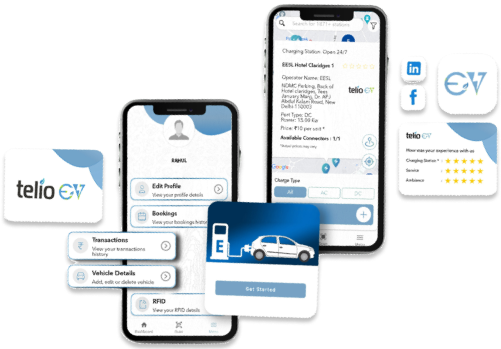The Blog to Learn More About EV Cms Software and its Importance
The Blog to Learn More About EV Cms Software and its Importance
Blog Article
Enhancing Electric Vehicle Charging with Advanced Management Software

The quick adoption of electric vehicles (EVs) has necessitated the advancement of efficient and easy to use charging solutions. Central to this development are Electric Vehicle Charging Management Software (EV CMS) and EV Charging Apps, which streamline the charging procedure for both operators and users.
Understanding EV Charging Management Software
EV Charging Management Software works as an extensive platform that makes it possible for Charge Point Operators (CPOs) and other stakeholders to monitor, manage, and optimize EV charging stations. Key functionalities include real-time tracking of charging stations, user authentication, payment processing, and energy management. By integrating these functions, the software ensures effective operation and boosts the user experience.
Key Features of EV Charging Management Software
1. Real-Time Monitoring and Control: Operators can supervise the status of charging stations, track energy intake, and address problems without delay.
2. User Authentication and Access Control: The software manages user access, making sure that only authorized individuals can use the charging facilities.
3. Payment Processing: It helps with smooth transactions, supporting different payment methods to accommodate varied user preferences.
4. Energy Management: By optimizing energy circulation, the software reduces operational expenses and supports grid stability.
5. Reporting and Analytics: Comprehensive data analysis aids in notified decision-making and strategic preparation for network growth.
The Role of EV Charging Apps
EV Charging Apps are designed to offer EV owners with hassle-free access to charging infrastructure. These applications provide functions such as locating close-by charging stations, real-time schedule updates, navigation assistance, and remote tracking of charging EV Charging Apps sessions. By boosting accessibility and user engagement, these apps play an important function in promoting the adoption of electric vehicles.
Integration with Open Charge Point Interface (OCPI)
The Open Charge Point Interface (OCPI) is a standardized protocol that helps with interoperability in between different EV charging networks. Integration with OCPI enables smooth roaming, making it possible for users to access several charging networks with a single account. This interoperability improves user benefit and expands the accessibility of charging infrastructure.
Advantages of Implementing Advanced Charging Solutions
- Enhanced User Experience: User-friendly interfaces and trustworthy services increase consumer satisfaction and loyalty.
- Operational Efficiency: Automation and real-time monitoring minimize manual intervention, decreasing functional costs.
- Scalability: Advanced software solutions support the expansion of charging networks to satisfy growing demand.
- Revenue Generation: Flexible prices models and effective payment processing open new earnings streams for operators.
Conclusion
The combination of EV Charging Management Software and user-centric EV Charging Apps is pivotal in advancing the electric vehicle ecosystem. These technologies not only enhance operations for service providers however likewise substantially boost the charging experience for users. As the EV market continues to grow, the adoption of such advanced solutions will be instrumental in meeting the increasing demand for efficient and accessible charging infrastructure. Report this page